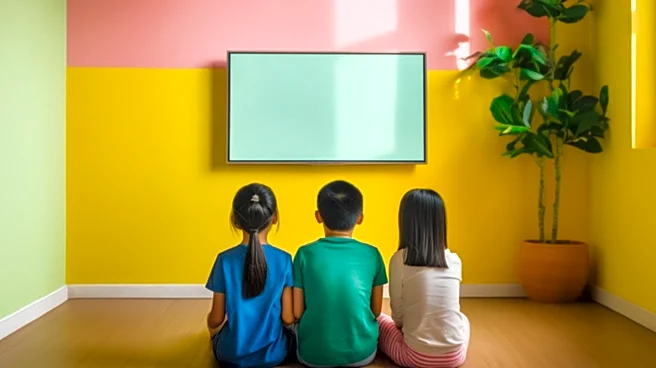What's Happening?
A Pew Research Center report reveals that American parents are increasingly challenged by their children's screen time, with YouTube being the most popular platform among kids. The survey indicates that 86% of parents have rules for screen use, but only 19% consistently enforce them. The report highlights that even children under two are watching YouTube, with usage rising significantly since 2020. Smartphones are prevalent, with 61% of parents reporting their children use them, and many parents believe children should be at least 12 before owning a device.
Why It's Important?
The findings underscore the growing concern among parents about the impact of screen time on children's development and safety. As digital platforms become more integrated into daily life, parents face challenges in regulating content and usage. The report suggests a need for tech companies and lawmakers to address these concerns, with many parents calling for stricter regulations on online content. The struggle to manage screen time reflects broader societal issues related to technology's role in children's lives and the need for effective parental guidance.
What's Next?
The report's findings may prompt increased advocacy for policy changes and technological solutions to help parents manage screen time more effectively. As concerns about inappropriate content and safety persist, there may be calls for tech companies to implement more robust parental controls and content filters. Lawmakers could also face pressure to enact regulations that protect children from harmful online content. The ongoing dialogue around screen time management may lead to new strategies and tools to support parents in navigating the digital landscape.
Beyond the Headlines
The issue of screen time management raises questions about the long-term effects of digital exposure on children's development. As technology continues to evolve, parents and educators may need to adapt their approaches to ensure children benefit from digital tools without compromising their well-being. The broader implications include potential shifts in educational practices and increased emphasis on digital literacy. As society grapples with the impact of technology on youth, there may be a growing focus on balancing digital engagement with real-world interactions.











